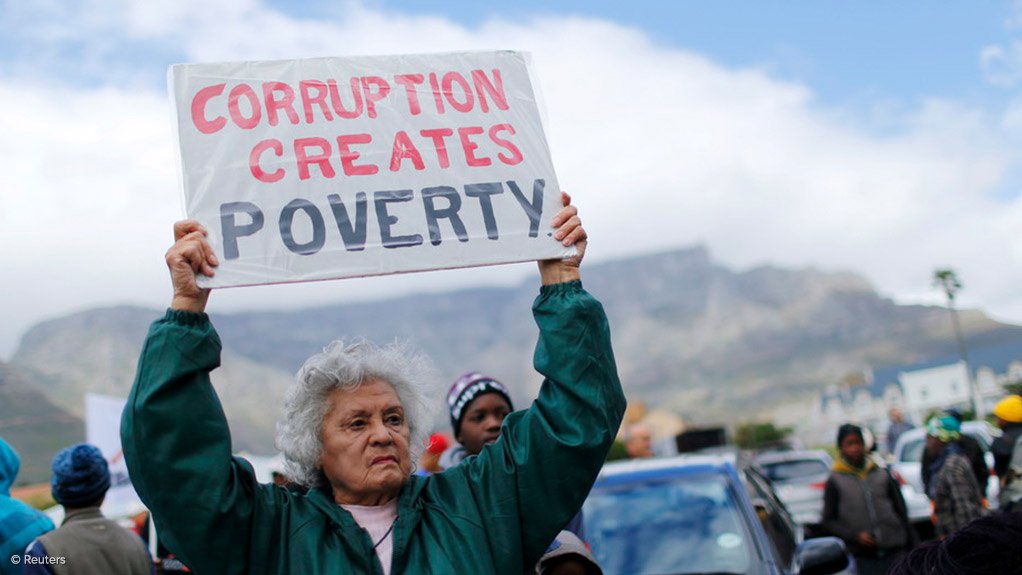Ahead of International Anti-Corruption on 9th December, a pause is needed to look at where the struggle against corruption would be without protected free expression and freedom of the media.
Members of the public had talked and complained about corruption with increasing frequency in a country wherein freedom of expression and that of the media are protected under the Constitution. If it had been in another country without those constitutional safeguards, the talking and complaints could have led to a crackdown with arrests and disappearances. Later some complaints were formalized, and some were laid by whistleblowers with both first-hand information and evidence to back them up. The exercise of free expression as well as media coverage became a catalyst for investigations by entities like the Public Protector. These investigations led to the Nkandla Report and State Capture Report. The media again publicised and investigated corruption further keeping it firmly in the public eye. Offline and online attacks on the media ensued. These attacks were particularly severe on female journalists with threats of rape, amongst others.
Freedom of the media and freedom of expression act in a mutually reinforcing way against corruption, making their protection and that of the other freedoms in the Bill of Rights crucial. The United Nations Office on Drugs and Crime acknowledges that the extent to which journalists can assist in corruption detection depends on how free and independent the media is. In order to play an effective role in detecting corruption it must be free and independent. The link has been so important for the United Nations that it has even developed a toolkit on best practice when reporting on corruption to guide journalists and governments.
Rick Stapenhurst, who has written about the media’s role in combatting corruption, distinguishes between the tangible and intangible ways the media assists in corruption detection. Tangible ways include fuelling outrage at corruption in government, forcing the impeachment and resignation of a corrupt official, prompting formal investigations and spurring citizens into action for reform. Intangible ways entail raising public awareness, increasing accountability and incentivising public officials to investigate corruption.
However, all of the above would miss a key ingredient of whistleblowers prepared to take risks and report corruption with evidence at great personal cost. A significant number of whistleblowers have lost their lives as a result because of the crucial nature of their input and revelations. Some were shunned and became “unemployable” in government and private enterprises after reporting corruption while employed in that sector.
It is safe to say that the fight against corruption would be much the poorer and short of effectiveness without the mutually reinforcing freedoms of expression and the media.
Written by Samkelo Mokhine, Executive Director at the Freedom of Expression Institute. This piece forms part of a set of civil society reflections and activations during Anti-Corruption Week, being marked from 3-10 December 2024.
EMAIL THIS ARTICLE SAVE THIS ARTICLE ARTICLE ENQUIRY
To subscribe email subscriptions@creamermedia.co.za or click here
To advertise email advertising@creamermedia.co.za or click here











